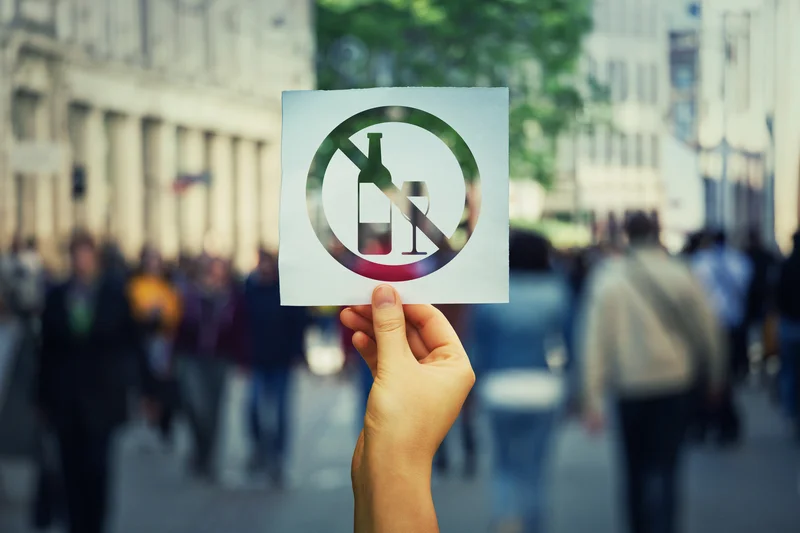
Treatment centers that offer care for substance use disorders may be an excellent place to start your recovery journey. There are several main reasons why clinicians believe cravings occur. As studies and technology advance, it is likely possible for researchers to how do i know if i am allergic to alcohol identify the source of cravings specifically.
Flushing

Our state-specific resource guides offer a comprehensive overview of drug and alcohol addiction treatment options available in your area. It is widely known and understood that over consumption of alcohol is generally bad for your health. There’s also new research suggesting such changes could be COVID-related.
- Possible alternatives to wine and grape-based spirits include Japanese plum wine, which has an appealingly sweet taste.
- By avoiding alcohol, choosing your beverages carefully, taking antihistamines, and staying hydrated, you can help to reduce your symptoms and feel more comfortable.
- Alcohol intolerance is caused by the lack of a specific enzyme that is necessary to break down alcohol, while an alcohol allergy is a reaction to specific ingredients in alcoholic beverages.
- In more severe cases, it can lead to anaphylaxis, which is very serious and requires immediate medical treatment.
Genetic Intolerance
Some individuals may find that they are able to consume small amounts of alcohol without experiencing symptoms, while others may need to avoid alcohol altogether. Consult with your healthcare provider if you have any concerns about alcohol intolerance or if you experience severe symptoms after consuming alcohol. If you have symptoms after drinking beer, but not after drinking wine or other alcoholic beverages, it’s not alcohol intolerance.
The signs and symptoms depend on how much alcohol has been drunk and on individual tolerances. With severe alcohol allergies, an emergency action plan should be put into place by your healthcare provider, as you may be at risk of life-threatening allergic reactions. Although alcohol and alcoholic drink intolerance, and alcohol and alcoholic drink allergy, are understood to be two different conditions, they can be triggered by a myriad of causes. For most individuals, it’s certain compounds in alcoholic beverages – rather than the alcohol itself – that trigger an adverse reaction. To be safe, it is important to pay attention to how you react when consuming alcoholic beverages and make sure that any medications you are taking do not interact adversely with alcohol.
Learn More About Alcohol Allergy and Intolerance from Baptist Health

This helps the immune system build tolerance over time, reducing the severity of allergic reactions in the long term. Sublingual immunotherapy can be a particularly useful treatment option for individuals with multiple allergies or those who do not respond well to other treatments. Symptoms of gluten intolerance, wheat allergy, and celiac disease often overlap, making it difficult to identify the condition.

Some people have lost control over their drinking altogether and have a drink because they cannot control when and how much they drink. For alcohol sensitivity, you don’t necessarily have to give up alcohol, but you should be mindful of your limits. Drinking in moderation or choosing beverages with fewer irritants, such as clear spirits instead of beer or wine, might reduce symptoms. You could also keep antihistamines on hand if your reactions tend to be mild but always consult with a doctor first.
If you have a wheat allergy, you can drink beer that is made with barley but not wheat. Alcohol use disorder can have detrimental effects on the patient but also greatly affects their loved ones and those around them. Those who have a history of misuse of alcohol can go on to lead healthy, fulfilling lives in recovery. Withdrawal symptoms happen because the neuroreceptors in a person’s brain have been decreased as a direct result of alcohol misuse. When a person suddenly stops drinking, these neuroreceptors are no longer inhibited and cause hyperexcitability in the brain. There are other factors, such as loss of control of alcohol consumption and a preoccupation or hyper-fixation of the act of drinking, that contribute to cravings as well.
Furthermore, certain allergy medications might interact with alcohol, leading to increased blood pressure, heart palpitations, or even a rapid heartbeat. It’s essential to consult with a healthcare professional before consuming alcohol while on allergy medications. They can provide guidance based on your specific medication and health condition. With this knowledge, you can choose alternatives to help you avoid the symptoms of alcohol intolerance.
How do I know if I am allergic to alcohol?
Similarly, those with a mold or yeast allergy may need to steer clear of fermented beverages made with brewer’s yeast, including beer and wine. If you experience headache, flushing, itching, or congestion after drinking red wine, it may be because you have histamine intolerance. People who suffer from alcohol use disorder may find themselves continuing to drink persistently and in excess despite recognizing the consequences of their alcohol consumption. There is a stigma surrounding labeling someone as an “alcoholic” or an “addict.” This societal stigma may prevent someone from seeking the treatment they need. The term drug addiction “alcohol use disorder” is the preferred terminology used to encompass the conditions of alcoholism and alcohol addiction.

What to do if drinking alcohol triggers a reaction
“You can become more tolerant of alcohol over time. This means when you drink, it does not seem to have the same effect, and you need to drink more to get the usual buzz,” explains Dr Fox. However, it can be questioned whether it’s realistic or attainable for someone to cut out drinking altogether, especially if it was a big part of their lifestyle beforehand. Over a decade later, research is still being conducted into alcohol intolerance.
Most cases of suddenly developed alcohol intolerance occur due to starting a new medicine that causes it. Genetic alcohol intolerance will not begin suddenly and will always be present from birth. There are some anecdotal cases of people experiencing alcohol intolerance after having COVID-19. However, there is no evidence showing that COVID-19 actually causes alcohol intolerance. Even in most anecdotal cases, the inability to drink as much often seemed to be related to fatigue or other long-COVID symptoms.
